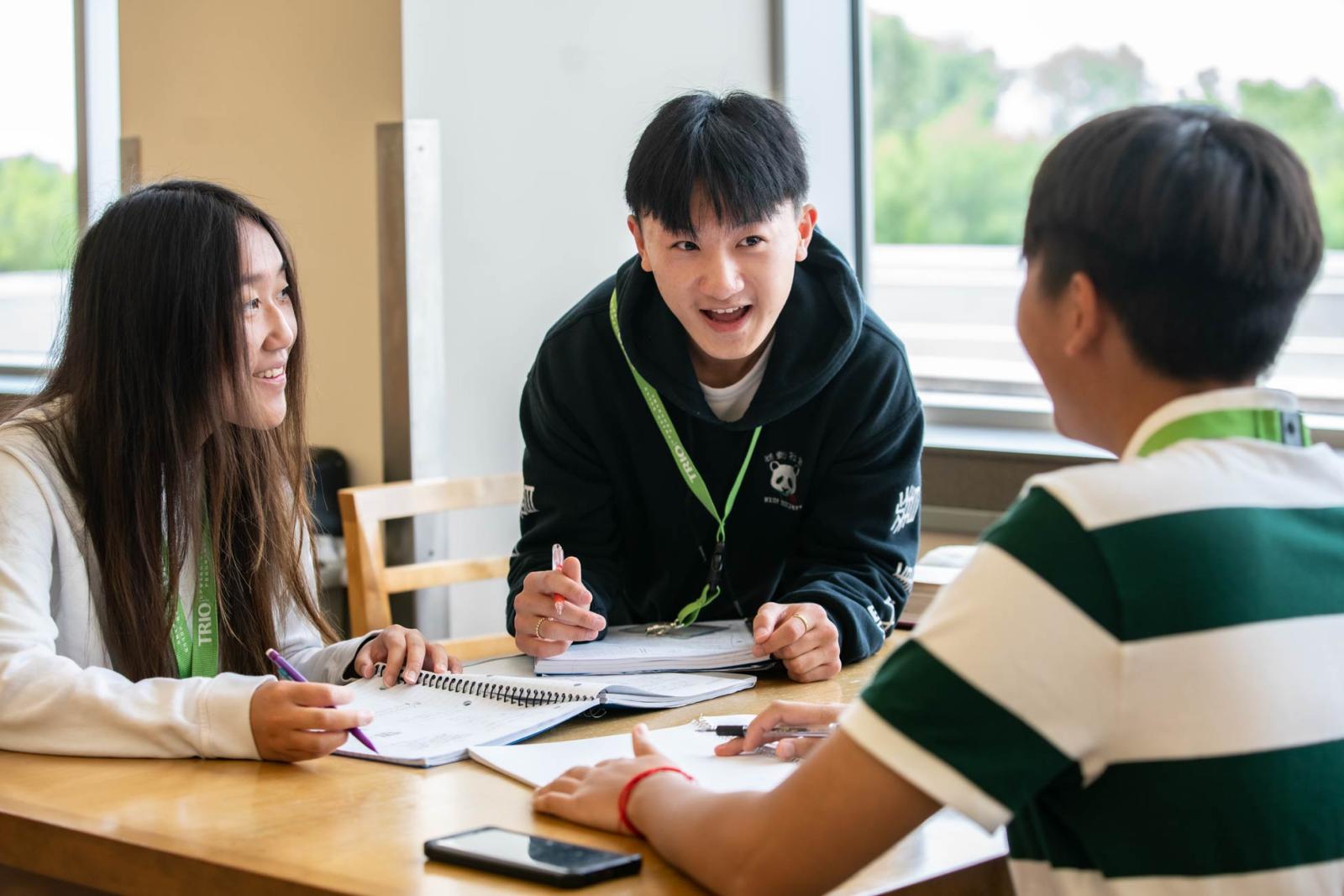TRIO Upward Bound
About the Programs
The TRIO Upward Bound and Upward Bound Math-Science programs are federally funded by the U.S. Department of Education. The programs are an equal opportunity educational program designed to generate the motivation of students to graduate from high school, enter college, and successfully complete a postsecondary degree. Metropolitan State University TRIO Upward Bound programs serve a total of 120 low/limited income and first-generation college-bound youth in grades 9-12 annually. All TRIO Upward Bound programming and activities are provided at no cost to the student.
TRIO serves high school students with parent(s)/guardian(s) who are both low income (150 percent of poverty level) and first-generation college student (neither parent has earned a 4-year college degree). The students must be currently enrolled in the participating high school and have academic potential and determination to attend a post-secondary institution after high school. TRIO Upward Bound Programs are an intensive year-round long-term program and our students must be willing to attend events and participate fully in our activities. Our high school partners include Washington Technology Magnet, Hmong College Prep Academy, and STEP Academy.

Program Mission
To develop, guide, support, and empower students to overcome their limitations and reach their full potential academically, financially, mentally and socially by enhancing their educational opportunity for college and lifelong success.
The Upward Bound programs are committed to educational equity. Our charge is not only to increase the number of students who attend and graduate from college but also develop participants into future leaders. In addition, the Upward Bound Math-Science program also strives to help students recognize and develop their potential to excel in math and science as well as encourage them to pursue post-secondary degrees and careers in math and science.
We provide the academic tools for college readiness and success through 1) intensive academic advising, 2) academic tutoring and rigor, 3) study skills and college test preparation 4) grade-specific workshops, 5) cultural enrichment, 6) mentoring, 7) career and college exploration, 8) leadership development and 9) community engagement.
